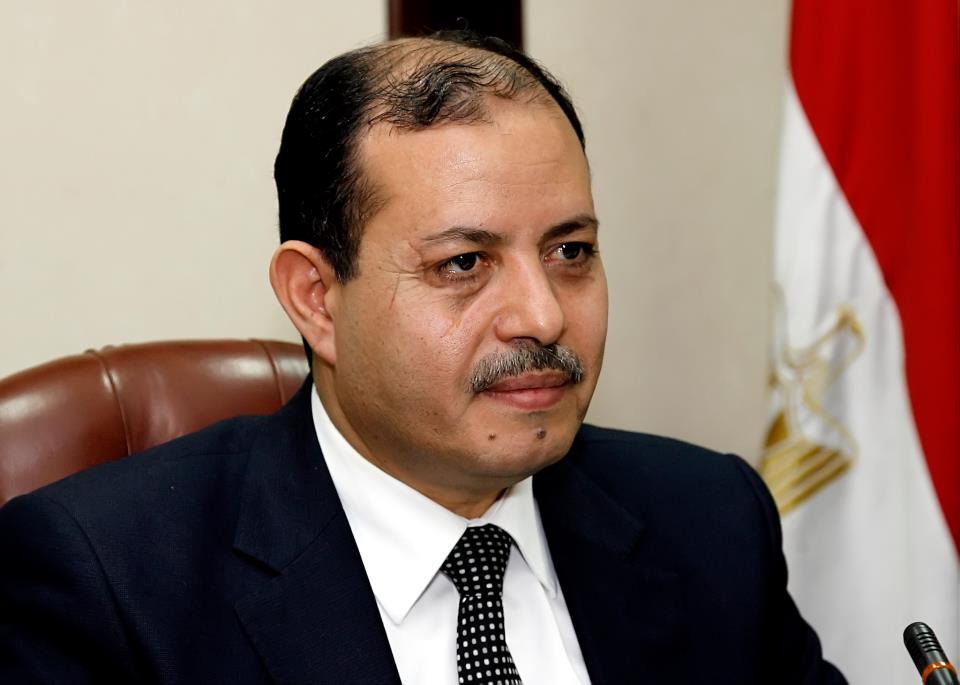Rania Al-Mashat, Minister of International Cooperation, participated in two high-level panel discussions on “Structural Transformation as a Driver of Prosperity in LDCs”, and “Investment in R&D in LDCs for Smart and Innovative Societies”, at the 5th UN Conference on LDCs, in Doha, Qatar, from 5 to 9 March, under the theme “From Potential to Prosperity”.
This conference included world leaders, representatives of the private sector, civil society, parliamentarians and youth to come up with new ideas, obtain new commitments of support, and stimulate the fulfillment of the commitments agreed through the Doha Programme of Action. The conference is expected to announce specific initiatives and tangible results that will help address the challenges of the least developed countries.
The session on “Structural Transformation as a Driver of Prosperity in LDCs” discussed the long-term transition process in economic activities from primary sectors, such as resource extraction and agriculture, to productive activities, such as manufacturing and services, in order to achieve comprehensive and sustainable economic growth and double the share of the LDCs in world trade. The session also discusses patterns through the Doha Programme of Action, the UN is working to achieve a comprehensive and sustainable structural transformation capable of increasing productivity and promoting infrastructure development, especially transportation and energy, and linking to global and regional value chains.
The session included Egypt’s Minister of International Cooperation, along with the Prime Minister of Bangladesh, the Prime Minister of Nepal, officials of the London School of Economics, the Under-Secretary-General of the United Nations, the Executive Secretary of the United Nations Economic and Social Commission for Asia and the Pacific, officials of the International Trade Centre, the European Investment Bank, and other representatives of governments, international institutions and UN organizations, participated in the session.
In her speech, Al-Mashat thanked the Qatari government for inviting the Government of Egypt to participate in this forum, pointing out the importance of the topics and debates on supporting and overcoming the challenges facing the LDCs. She noted that structural reforms are undoubtedly critical to fostering inclusive and sustainable growth in LDCs, there are a number of factors to consider, most importantly state ownership and leadership of structural reform efforts that serve national priorities and strategies, along with the implementation of programs that provide social protection, as well as the adjustment and adaptation of incentive policies to the private sector, improving the efficiency of financial markets and public institutions and enhancing their readiness for digital transformation, as well as increasing the inclusion rate and financial services penetration.
The Minister pointed to the importance of programs related to South and Triangular Cooperation to enable countries to benefit from and build on previous experiences while taking into account national priorities. Moreover, she stressed the importance of the efforts made by international institutions and multilateral development banks in relation to equitable financing that can enable countries to implement their plans on structural reforms.
In another context, the Minister participated in the panel discussion on “Investment in R&D in LDCs for Smart and Innovative Societies” with several representatives of governments and international institutions, including the Prime Minister of Bangladesh who delivered the keynote address, UN officials, World Intellectual Property Organization officials, and others.
Al-Mashat stressed the importance of research and development capacities and their role in promoting inclusive and sustainable growth in all countries in the face of the changing world, noting that the Government of Egypt stipulated in the constitution to allocate a specific percentage of the country’s domestic product to research and development efforts as the country works to expand and increase spending on academic institutions in the field of science, technology and innovation.
Additionally, she pointed to the joint relations between Egypt and development partners, academic and research institutions, and programs implemented with development partners to expand technological universities and research efforts, noting that the cooperation portfolio includes 35 projects in the field of research, innovation, digital transformation and entrepreneurship that contribute to the implementation of 11 SDGs worth $1bn, representing 4.5% of the total portfolio.
The Minister touched upon some of the challenges faced by LDCs in order to strengthen people and organizational capacities in research and development, most importantly, the weak economic growth that contributes to limiting the ability of these countries to invest in education, health, infrastructure and innovation, as well as the technology gap that limits the competitiveness of those countries and their position in global markets, as well as governance structures, frameworks and funding adequacy.

